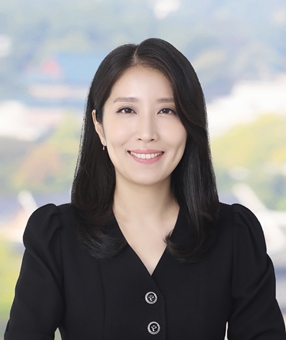Article 388 of the Korean Commercial Code (the “KCC”) provides that if the amount of remuneration for directors is not determined in the articles of incorporation, then it shall be determined by a resolution of the general meeting of shareholders. According to this regulation, most corporations present the compensation limit for directors for the relevant business year as an agenda item at their ordinary general meetings of shareholders. It is common practice for the board of directors to determine the specific details, such as the amounts paid to individual directors, within the compensation limit set by the general meetings of shareholders (e.g., Supreme Court Decision 2016Da241515, 241522 rendered on June 4, 2020).
In this regard, whether a director who is subject to the compensation limit and also a shareholder falls under the category of a shareholder with a special interest as stipulated in Article 368(3) of the KCC, and thus is restricted from exercising his/her voting rights regarding the compensation limit agenda, has recently been a topic of controversy in lower courts.
The existing conventional theories and practices suggest that when the ceiling amount of compensation or specific amount of compensation of each director is determined separately at a general meeting of shareholders, the shareholders who are also directors are recognized as having a special interest. However, when the total compensation for all directors is determined as a pooling limit at the general meeting of shareholders, the shareholders who are also directors are considered not to have a special interest, and therefore allowed to exercise their voting rights. A “special interest” under Article 368(3) of the KCC refers to a case where a specific shareholder has a personal interest in the agenda at the general meeting of shareholders, beyond their position as a shareholder (e.g., Supreme Court Decision 2007Da40000 rendered on September 6, 2007). In the former case, it is recognized that the director’s personal benefit from compensation correlates with the agenda of the general meeting of shareholders, whereas, in the latter case, since only a pooling limit on the total compensation for all directors is set and the specific amounts for individual directors are determined by the board of directors, the court held that it is difficult to claim that the individual director has a personal interest related to that agenda.
However, recently there have been numerous lower court rulings that deviate from these conventional theories and practices, and some of these have been confirmed by the Supreme Court without further deliberation, attracting the attention of businesses and the market.
For instance, Company A, a listed company, approved an agenda at its ordinary general meeting of shareholders in March 2023 to set the total compensation limit for all directors at KRW 5 billion. Shareholder-directors of Company A exercised their voting rights in favor of this resolution, and without their affirmative votes, the agenda could have been rejected. Following this, the auditor of Company A filed a lawsuit to annul the resolution of the general meeting of shareholders. The first-instance court held that a shareholder who is also a director “has a special personal interest since the resolution to determine the compensation limit allows them to receive compensation within that limit,” noting that “the compensation limit set for directors at the general meeting of shareholders inevitably has a significant impact on the future determination of specific compensation amounts for individual directors, and the compensation of a shareholder-director is closely related to their personal interests rather than their interests in corporate control.” This ruling concluded that “a shareholder-director should be regarded as having a special interest in the agenda regarding the approval of the director’s compensation limit, which should not be viewed differently from other cases where specific compensation for individual directors is decided” (Seoul Central District Court Decision 2023GaHap66328 rendered on May 31, 2024). The ruling of the first-instance court was also accepted by the appellate court (Seoul High Court Decision 2024Na2027590 rendered on January 22, 2025), and the Supreme Court confirmed the ruling without any errors found, concluding the case by dismissing the case without further deliberation, and the case was closed without hearing on merits (Supreme Court Decision 2025Da210138 rendered on April 24, 2025).
Additionally, in another case where a shareholder of another listed company, Company B, filed a preliminary injunction against the exercise of voting rights at a general meeting of shareholders, claiming that the exercise of voting rights by shareholders who are directors should be restricted, the court ruled that the voting rights of the shareholder-director should be restricted on the grounds that the shareholder-director has a personal interest in the approval of the compensation limit, thereby limiting their voting rights according to Article 368(3) of the KCC (Busan District Court Western Branch Decision 2023KaHap100154 rendered on September 22, 2023).
The Supreme Court’s confirmation of the court decision on Company A above – although it was a dismissal without further deliberation without a detailed reasoning – raises the likelihood of it being recognized as a precedent applicable to future general meetings of shareholders. Thus, it is important to pay attention to the recognition of voting rights for director-shareholders in future ordinary or extraordinary general meetings of shareholders. In particular, when individual major shareholders are directors, if their voting rights are limited, it often becomes unavoidable to secure the necessary quorum through active recommendations for proxy voting by other general shareholders. Therefore, thorough preparation and detailed communication with shareholders during the process of convening and conducting the general meeting of shareholders may be crucial. It will also be necessary to continuously monitor future precedents to see whether the Supreme Court will address the same issues with specific reasons if similar matters arise.








